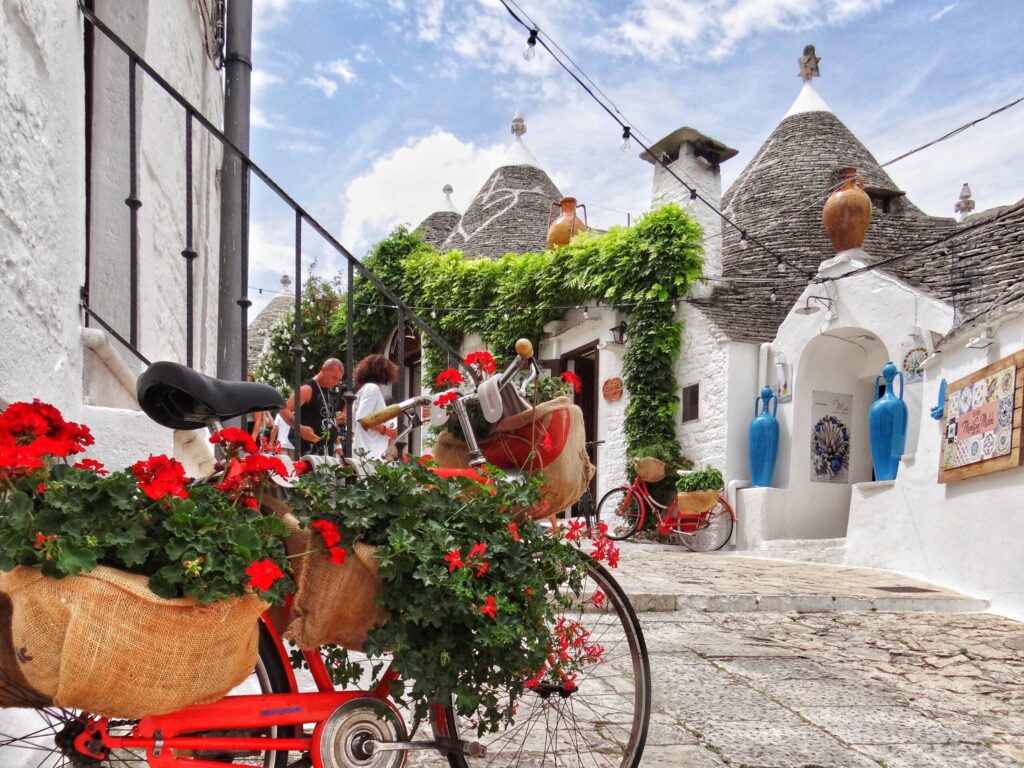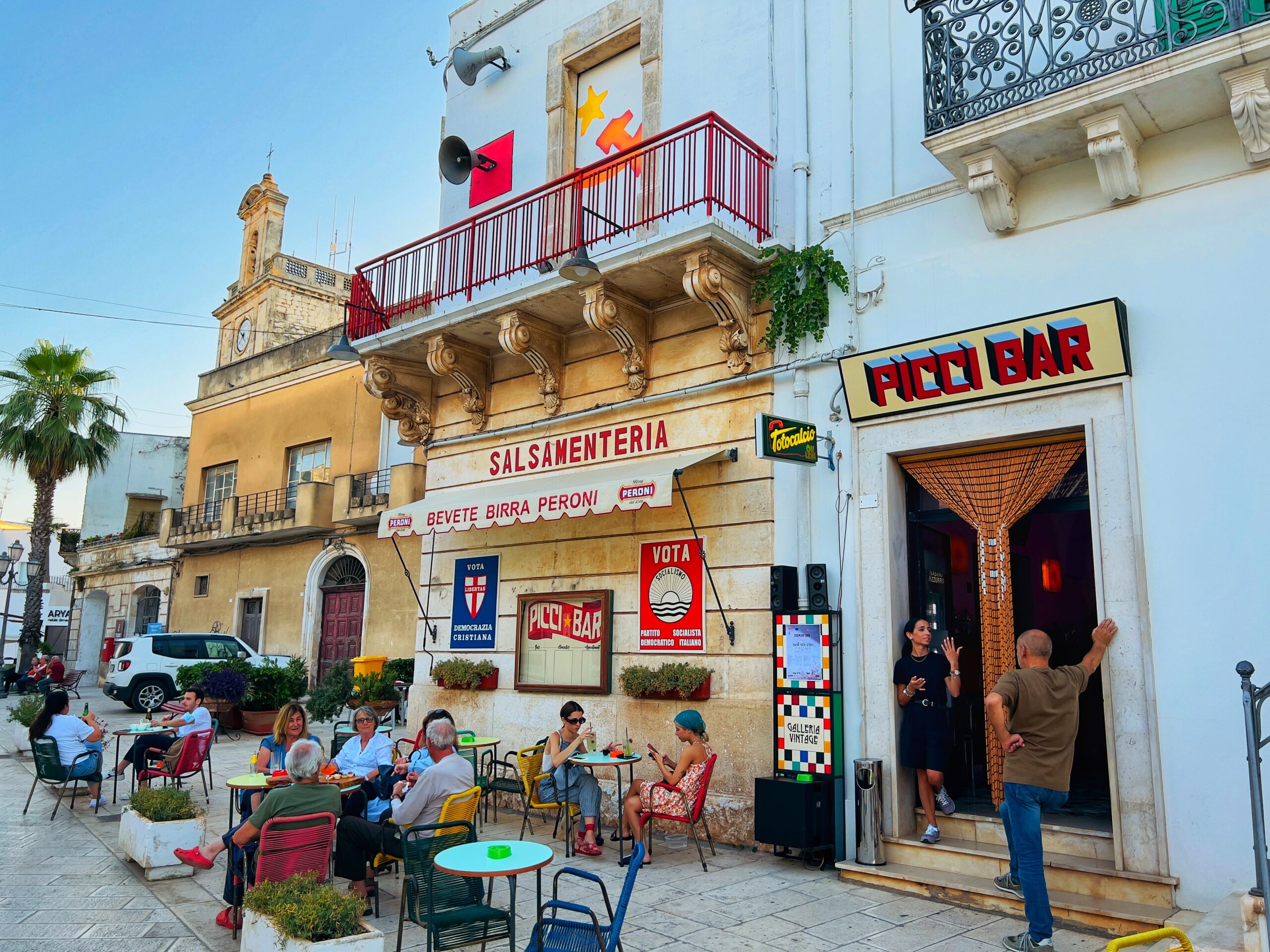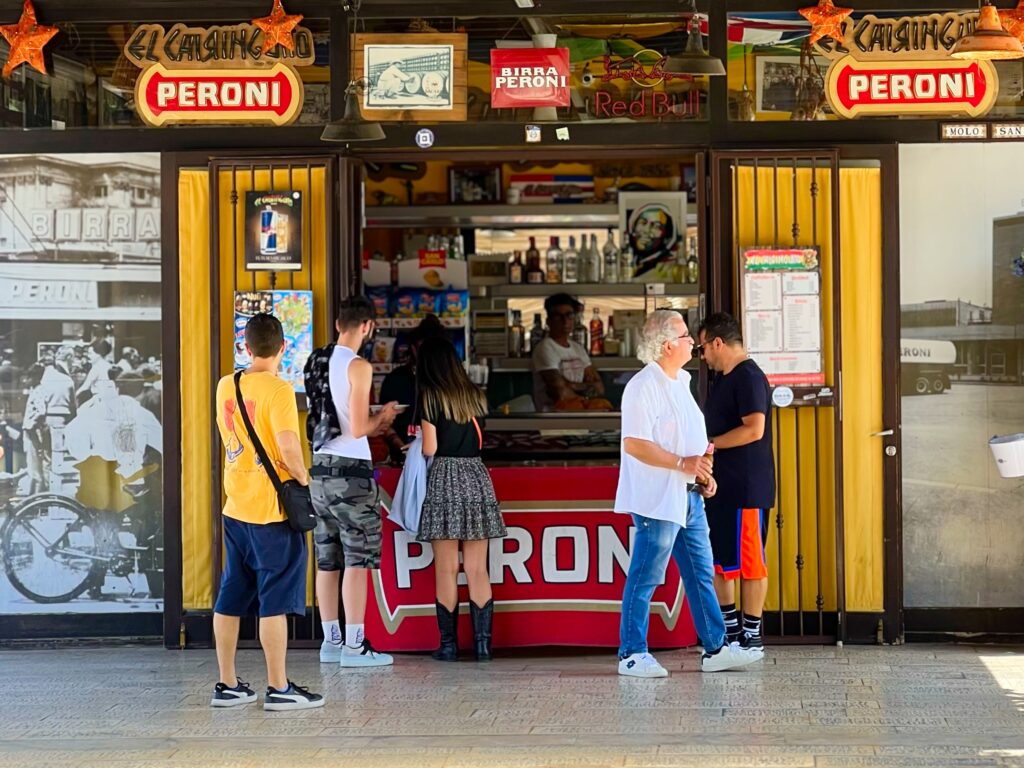Speaking Italian on Holiday in Puglia: Why a Little Goes a Long Way
Trying out some Italian phrases on vacation in Italy will definitely add value to your visit. Practicing your language skills can be fun and adventurous, and can lead to unexpected encounters and experiences. It can also be a great way to immerse yourself in the local culture and connect with the people and traditions of Italy. Something that can make your stay more authentic and memorable.
Unlike more tourist-heavy parts of Italy, English isn’t always widely spoken here, especially in smaller towns or family-run businesses. But that’s exactly what makes trying out a few words in Italian such a rewarding experience.
Why It Matters
Speaking even a handful of Italian phrases shows that you respect the local culture and are willing to make an effort. It’s a simple but powerful gesture that demonstrates curiosity and appreciation — values that are often repaid with extra helpings of kindness and patience. Locals are far more likely to go the extra mile for someone who says “Scusi, posso chiedere una cosa?” than someone who opens with “Do you speak English?”
Learning a little Italian can also help you navigate more confidently — whether you’re reading menus, asking for directions, or shopping at a local market. It shows respect for the local people and demonstrates a willingness to learn and adapt to different cultures. And it’s fun. You might not get everything right, but the effort itself can lead to genuine smiles, good-natured corrections, and even new friendships.
Useful Italian phrases for beginners

To help you get the most out of your trip, improve your communication and cultural skills, and create lasting memories, here are some useful Italian phrases for tourists to use in Italy, along with their pronunciations:
- Buongiorno (bwohn-JOR-noh) – Good morning
- Buonasera (bwoh-nah-SEH-rah) – Good evening
- Grazie (GRAH-tsee-eh) – Thank you
- Prego (PREH-goh) – You’re welcome/Please
- Scusi (SKOO-zee) – Excuse me
- Parla inglese? (PAR-lah een-GLEH-zeh?) – Do you speak English?
- Mi chiamo… (mee KYAH-moh) – My name is…
- Vorrei (vohr-REH-ee) – I would like
- Quanto costa? (KWAN-toh KOH-stah?) – How much does it cost?
- Dove si trova…? (DOH-veh see TROH-vah?) – Where is…?
Bonus phrases:
- Ciao (chow) – Hello/Goodbye (informal)
- Per favore (PEHR fah-VOH-reh) – Please
- Mi dispiace (mee dees-pee-AH-cheh) – I’m sorry
- Non capisco (non kah-PEES-koh) – I don’t understand
- Posso pagare con la carta di credito? (POHS-soh pah-GAH-reh kohn lah KAR-tah dee KREH-dee-toh?) – Can I pay with a credit card?
Try to learn a few basic phrases in Italian to make your trip more enjoyable and immersive. Practice your pronunciation as much as possible to improve your communication skills. But above all, have fun, and enjoy.
In bocca al lupo!
“In bocca al lupo” (in BOH-kah ahl LOO-poh)!
A common and widely recognized Italian expression often used in a variety of situations to wish someone good luck. It translates as “in the mouth of the wolf.”
The origin of the phrase is unclear, but there are a few theories. One popular theory is that the phrase comes from the world of theater, where actors would wish each other “in bocca al lupo” before a performance. In ancient Rome, the wolf was considered a symbol of good luck, and it’s possible that the phrase “in bocca al lupo” evolved from this belief.
Another theory is that the phrase comes from the world of hunting. Hunters would wish each other “in bocca al lupo” before a hunt, as a way of wishing each other success in their pursuit of game.
The traditional response to “in bocca al lupo” in Italian is “crepi il lupo” (KREH-pee eel LOO-poh), which means “may the wolf die.” This response is meant to ward off any potential bad luck associated with mentioning the wolf.
It is considered bad luck to respond with “grazie” (GRAH-tsee-eh), which means “thank you.”
In modern times you might hear “viva il lupo” (VEE-vah eel LOO-poh) in response, meaning “may the wolf live”.
A Final Word
Speaking a bit of Italian is not about perfection — it’s about connection. Whether you’re ordering a coffee in Lecce, buying focaccia in Bari, or simply asking for directions in a hilltop town, a few words in Italian can transform a simple exchange into something unforgettable.
So go ahead — practise those phrases, smile when you stumble, and dive in.
In bocca al lupo — and buon viaggio!
More Puglia
Want to discover the must try dishes to eat on vacation in Puglia?
Discover the best location to stay on holiday in Puglia.
Discover Puglia with our city guides to Italy’s Puglia region.




